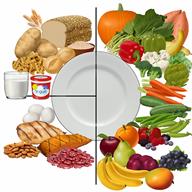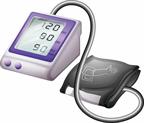Hypertension, Adult
Hypertension is another name for high blood pressure. High blood pressure forces your heart to work harder to pump blood. This can cause problems over time.
There are two numbers in a blood pressure reading. There is a top number (systolic) over a bottom number (diastolic). It is best to have a blood pressure that is below 120/80.
What are the causes?
The cause of this condition is not known. Some other conditions can lead to high blood pressure.
What increases the risk?
Some lifestyle factors can make you more likely to develop high blood pressure:
Smoking.
Not getting enough exercise or physical activity.
Being overweight.
Having too much fat, sugar, calories, or salt (sodium) in your diet.
Drinking too much alcohol.
Other risk factors include:
What are the signs or symptoms?
High blood pressure may not cause symptoms. Very high blood pressure (
hypertensive crisis) may cause:
Follow these instructions at home:
Eating and drinking

Lifestyle

-
Work with your doctor to stay at a healthy weight or to lose weight. Ask your doctor what the best weight is for you.
-
Get at least 30 minutes of exercise that causes your heart to beat faster (aerobic exercise) most days of the week. This may include walking, swimming, or biking.
-
Get at least 30 minutes of exercise that strengthens your muscles (resistance exercise) at least 3 days a week. This may include lifting weights or doing Pilates.
-
Do not smoke or use any products that contain nicotine or tobacco. If you need help quitting, ask your doctor.
-
Check your blood pressure at home as told by your doctor.
-
Keep all follow-up visits.
Medicines
-
Take over-the-counter and prescription medicines only as told by your doctor. Follow directions carefully.
-
Do not skip doses of blood pressure medicine. The medicine does not work as well if you skip doses. Skipping doses also puts you at risk for problems.
-
Ask your doctor about side effects or reactions to medicines that you should watch for.
Contact a doctor if:
-
You think you are having a reaction to the medicine you are taking.
-
You have headaches that keep coming back.
-
You feel dizzy.
-
You have swelling in your ankles.
-
You have trouble with your vision.
-
You get a very bad headache.
-
You start to feel mixed up (confused).
-
You feel weak or numb.
-
You feel faint.
- You have very bad pain in your:
-
You vomit more than once.
-
You have trouble breathing.
These symptoms may be an emergency. Get help right away. Call 911.
Summary
-
Hypertension is another name for high blood pressure.
-
High blood pressure forces your heart to work harder to pump blood.
-
For most people, a normal blood pressure is less than 120/80.
-
Making healthy choices can help lower blood pressure. If your blood pressure does not get lower with healthy choices, you may need to take medicine.
This information is not intended to replace advice given to you by your health care provider. Make sure you discuss any questions you have with your health care provider.

